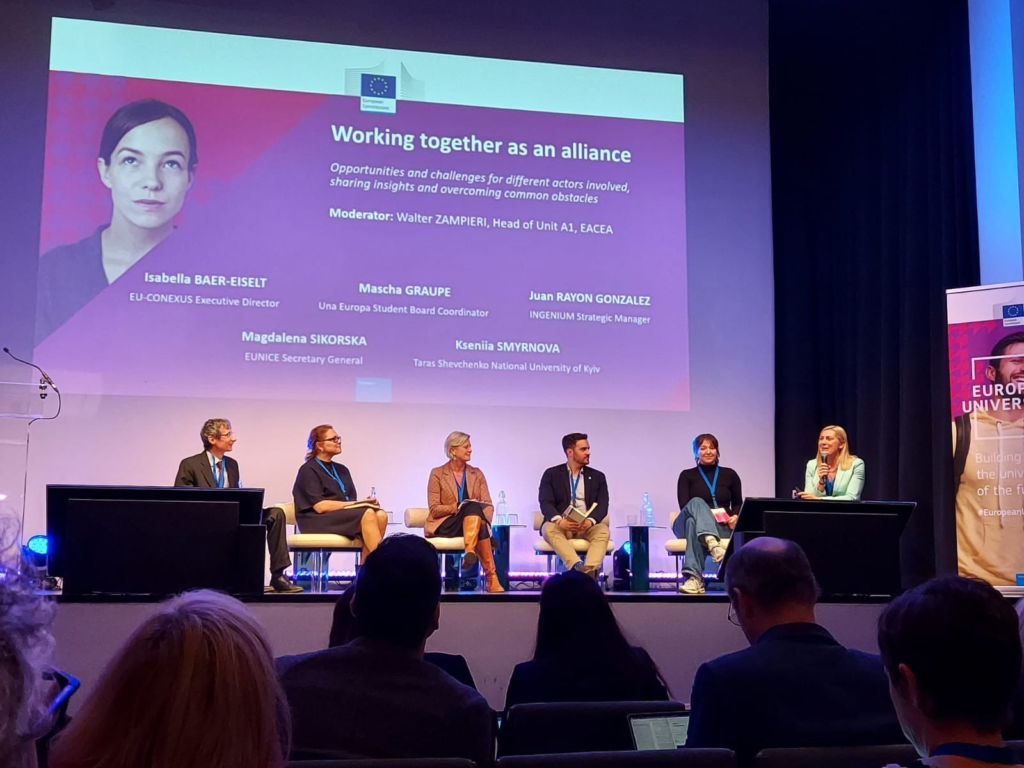European Universities II Coordinators’ meeting “Working together as an alliance” (07.02.2024, Brussels)
On 7 February, 2024, the National Erasmus+ office – Ukraine team took part in the European Universities II Coordinators’ meeting “Working together as an alliance”, which took place in Brussels.
The meeting brought together 150 participants from 50 alliances, representatives of the European Commission and the European Education and Culture Executive Agency (EACEA). Some of the core topics addressed during this event were the upcoming higher education package and grant management. On top of that, it presented a brilliant opportunity for alliances to share good practices, creating a participatory space for the exchange of ideas.
Addressing the future of European Universities, representatives of the Commission’s Directorate General for Education and Culture (DG EAC) also presented the possible scenarios of long-term funding for the Alliances to be proposed to Europe and the member states in the year to come.
Another highlight of this event was a presentation by Tine DELVA, a representative of DG EAC. She summarised the results of the monitoring framework (evaluation of the impact of European Universities Alliance as a whole), showcasing the added value of being in an Alliance for partner universities.
Svitlana SHYTIKOVA, Coordinator of the National Erasmus+ office – Ukraine, took part in the event and stressed the importance of cooperation between European universities and Ukrainian higher education institutions, emphasising the need to exchange experience and best practices to improve the quality of education in the face of modern challenges.
In summary, the benefits include:
- Transcending traditional cooperation and building a common focus to the entire community
- Long-term stable and deeper cooperation whilst implementing a shared vision for higher education and research
- Impacting individual partners of Higher Education Institutions (HEIs) in their strategies and structures
- Creating and piloting innovative mobility and education formats
- Opening up flexible learning options that would not exist otherwise
- Reaching out to all staff categories, including those previously excluded from internationalisation activities
- Influencing regional, national and European policies in an unprecedented way
- Increasing partner HEIs visibility and reputation leading to new cooperation opportunities worldwide
- Acting as a catalyst for change in partner HEIs.
But according to Sophia ERIKSSON-WATERSCHOOT, who is a Director of Youth, Education and Erasmus+ at DG EAC, the benefits of forming University Alliances also include a plethora of immeasurable wins, such as creating a sense of belonging, promoting EU values and identity.
During the event, Vanessa DEBIAS SAINTON, another representative of DG EAC, also presented options for possible long-term sustainable funding (investment pathway) over 7 years (2028-2034). Set for an introduction to the Member States in the following year, sustainable funding will support the long-term mission of the European Universities.

